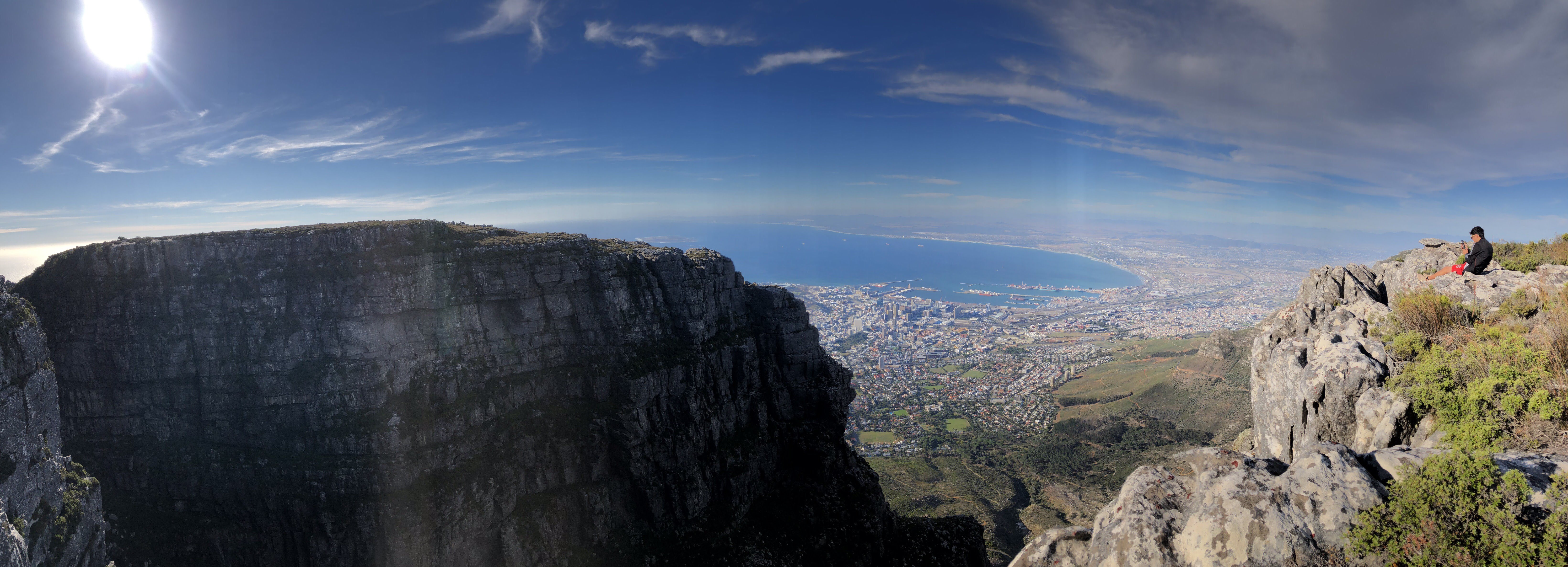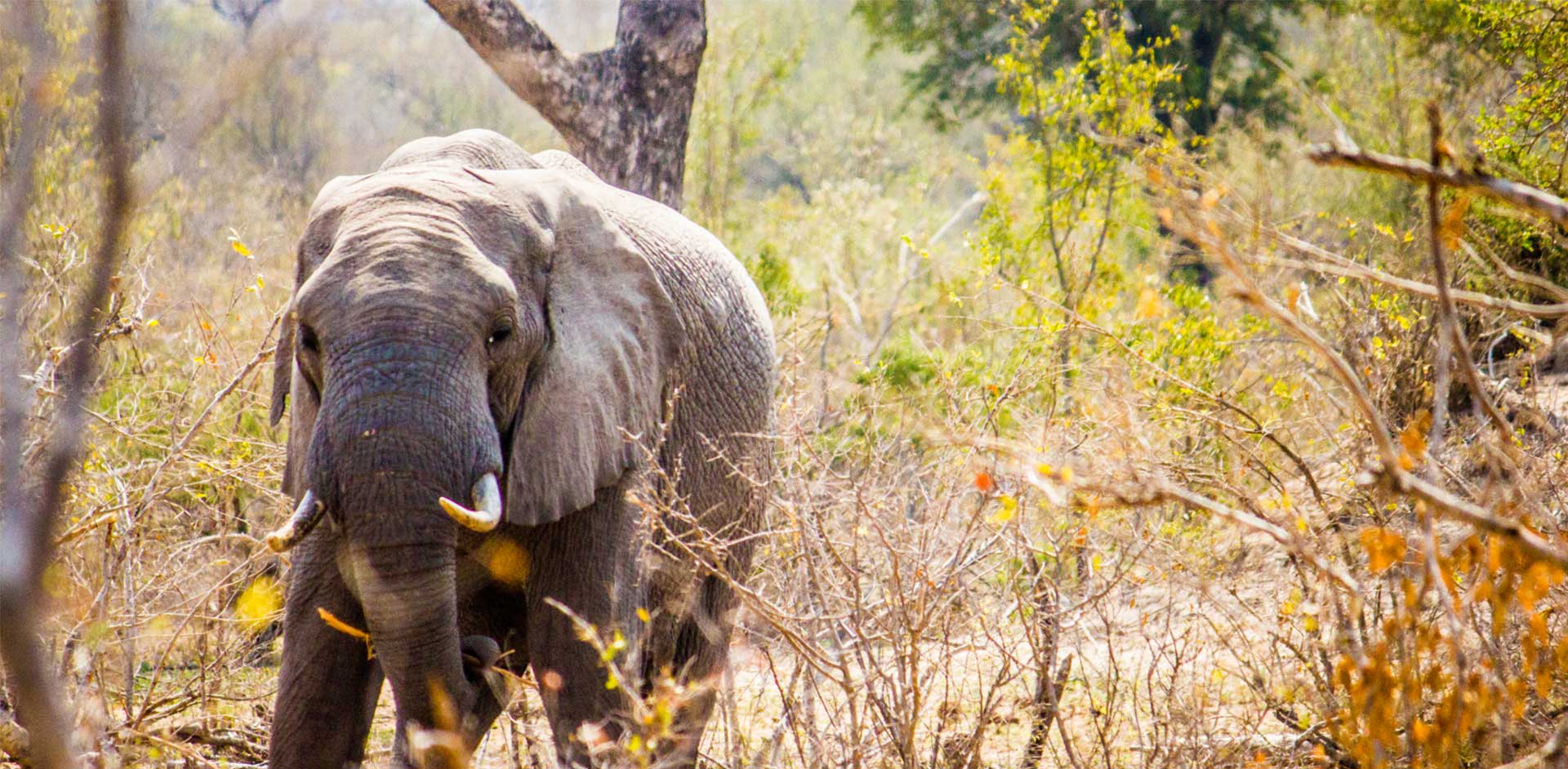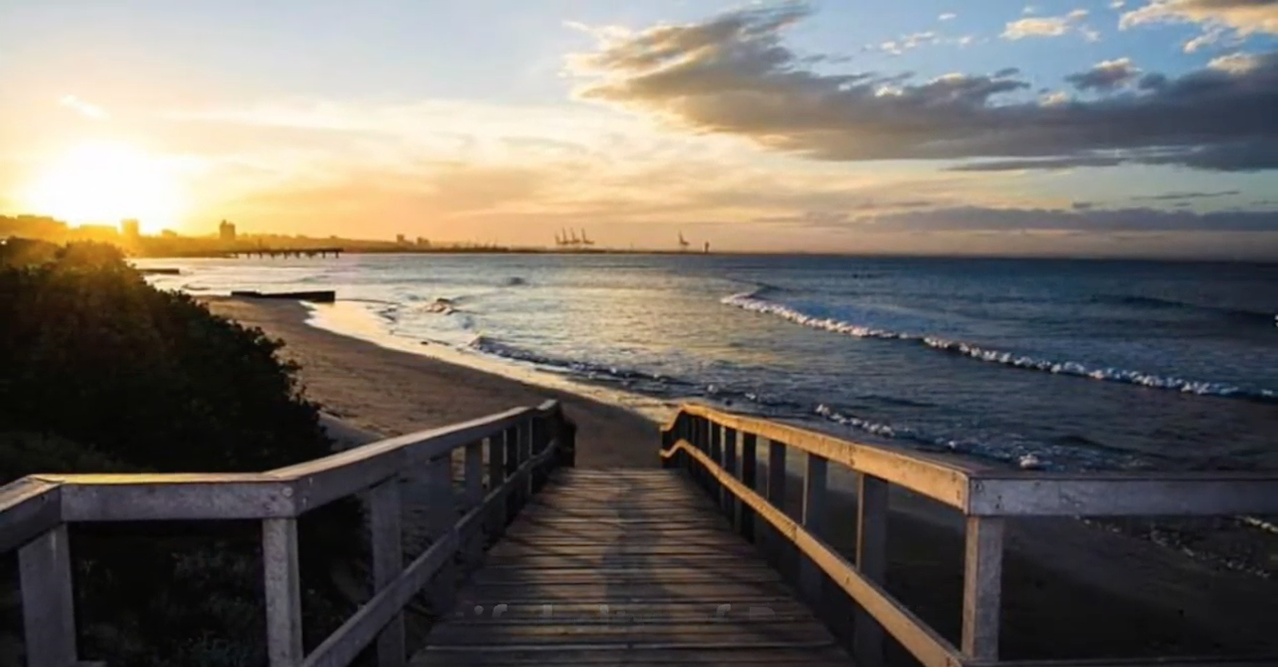South Africa: Nelson Mandela University
Nelson Mandela University is located in Port Elizabeth, South Africa. With a total of seven campuses, the university is the largest international university in the Southern Cape with their main campus, where most UNI students take classes at, is in the heart if a nature reserve.
Offering beautiful orange sunsets and tranquil sandy-white beaches, the Eastern Cape is where people with friendly smiles greet you with a "good morning", "goeie more"’ or "molo"... By studying at NMU, you are able to experience quality and affordable education as well as the amazing wildlife, history and the culture of South Africa.

Dates & Deadlines
Term: Spring 2026
App Deadline: October 1st, 2025
Program Dates: February - June
Spring 2026 applications are now open. Students can click the link below to schedule a meeting to go over important details about this program and begin the application process.
Interested in studying abroad in the Summer of 2026 or later? Please fill out the waitlist form below and the study abroad center will notify you when applications for future terms open. If you are still deciding where or when you want to go abroad, you can also schedule an informational meeting with our office to learn more about the programs we offer and find one that works best for you!
Study Abroad Waitlist Schedule Info Meeting
Unsure where to begin? Visit our Application Process page to learn more!
Location
NMU is located in Port Elizabeth. Port Elizabeth is a coastal city on the south-eastern coast of South Africa and is along the shores of Algoa Bay, which has 40 kilometers of magnificent coastline and sandy beaches great for water sports and swimming, making it known as the Water Sport Capital of Africa. It has strong links with industrial and automotive sectors and has a wide variety of interesting architectural and historical sites, enchanting beaches, excellent sporting facilities and an upbeat cultural life.
There are opportunities for up-close encounters with sea animals that are located close to the Bay. Throughout the year, visitors have the opportunity to see the Southern Right Whale (Humpback Whale). Port Elizabeth is also very close to Addo Elephant Park, Daniel’s Cheetah Farm and other game reserves. The city's central location in the Eastern Cape makes it very easy to travel west towards Cape Town or east towards Durban.
- Academics
Established in 2005, Nelson Mandela University currently has more than 20,000 students and is one of the few comprehensive universities in South Africa. The university already has a strong track record in both fundamental and applied research, working extensively in partnerships with business and industry professionals.
NMU is the most culturally, linguistically and academically diverse university in South Africa. It prides itself on being at the forefront of the political and educational transformation of higher education in South Africa and is also the largest university campus in the southern hemisphere.
Courses: NMU offers a comprehensive list of courses (modules) to choose from that align well for UNI students. Most modules are available to Study Abroad and Exchange students, however, each department/faculty has its own requirements for certain programs and modules. All courses are taught in English though students are able to take Xhosa or Afrikaans as well during their semester at NMU.
Information on courses and when they are offered can be found here. You can see what is offered in specific subjects first and then use the browser to determine if it is available during a specific term. Meet with Study Abroad Staff for assistance with navigating courses.
Community Service Learning: The International Office offers a unique and popular 2 US credit module called Community Service Learning (CSL 100). This CSL module allows students from abroad with the opportunity to demonstrate and develop their global citizenship through volunteer work. Students will have the opportunity to make a difference in communities where assistance is much needed. Students can volunteer through service-learning initiatives by assisting at one of NMU's approved community-service learning projects.There is an additional cost for the course, which pays for transportation to and from the volunteer site(s).
Teaching Methods and Styles: In South Africa, most undergraduate courses consist of lectures, classes, workshops, and tutorials. Students will also have 'unstructured' time providing them with the opportunity for individualized reading and research. Grades are often weighed heavily on exams and other assessments.
Academic Calendar: The university operates on a semester system. Semester 1 (Spring semester) running from February to June and Semester 2 (Fall semester) running from July to December. When thinking about semester dates, it is important to note that on the other side of the hemisphere, their Spring semester is our Fall and vice versa. When searching for courses, please remember that NMU's Semester 1 is UNI's Spring semester and NMU's Semester 2 is UNI's Fall semester.
Credits and Grades: NMU is a great place to study abroad and receive a sufficient amount of credits. Students need to take 40-60 NMU credits per semester and 100-120 NMU credits per academic year (fall and spring). Grades are also calculated differently. Credit conversions, and grading equivalencies can be found below:
4 NMU credits = 1 US credit.
Credits Grades
4 = 1 75 -- 100 = A
6 = 1.5 70 -- 74 = B+
7 = 1.8 65 -- 69 = B
8 = 2 60 -- 64 = B-
10 = 2.5 57 -- 59 = C+
12 = 3 54 -- 56 = C
15 = 3.8 51 -- 53 = C-
16 = 4 Less than 51 = no transfer creditTake a view of campus at the video below:
- Participant Info
Meet your Advisor:
Stephanie is a full time study abroad advisor who will help you throughout the application process to South Africa, including documentation, finances, scholarships, and more. From the application process to financial assistance to preparing for your journey abroad, Stephanie will be with you every step of the way providing guidance and reassurance.
Important information to review:
Study abroad is a once-in-a-lifetime opportunity to be challenged by new experiences in new environments and cultures. UNI study abroad programs are designed to prioritize educational opportunities for students. Students are encouraged to embrace the adventure of exploring how housing, meals, and daily routines differ abroad.
Immigration Information:
Information on the visa process for South Africa can be found at www.southafrica-usa.net/homeaffairs/jurisdiction.htm.
Entry and Exit Requirements:
Review and follow the travel recommendations of the U.S. State Department for travel to South Africa

- Housing & Meals
International students who choose to study at NMU will live in off-campus, apartment-style accommodation with other international students. Students will have their own rooms and share a restroom and kitchen with one other student. The most common options that UNI students opt for is an "Explorer - Two Bed" accommodation. This is what is used for the cost estimate, but there are more options shown on CampusKey Webpage.
This accommodation is self-catered and is located extremely close to a grocery store and restaurants. The accommodation also offers an exercise facility and a common area game room. The university has multiple levels of security to ensure student safety.
CampusKey is located 100 meters from the beach, 2km from the main campus, and is centrally located to all other amenities and boasts a diverse mix of students from every corner of the world.
Further details on CampusKey can be found on the student living page.
Program Costs
Estimated Program Cost: $13,298*
*estimated total cost of participation, actual amount depends on type of housing accommodation selected, actual airfare purchase price, personal spending habits and other factors
| Estimated Total Program Cost | $13,298 |
| Estimated U-bill Charges | $7,758 |
| Estimated Out-of-Pocket Costs | $5,541 |
Fall 2025 Estimated Budget Sheet (PDF)
Spring 2024 Estimated Budget Sheet (PDF)
Cost of Studying On Campus at UNI*
*per semester, estimated, will vary per person
| Tuition & Fees | $4,968 |
| Room & Board | $4,993 |
| Books | $400 |
| Personal Expenses | $902 |
| Transportation | $385 |
| Total | $11,648 |
Eligibility Requirements to Study Abroad
The Study Abroad Center reserves the right to determine participants' eligibility to study abroad. Students must have a completed study abroad application, including supportive recommendation form(s). View eligibility requirements.


